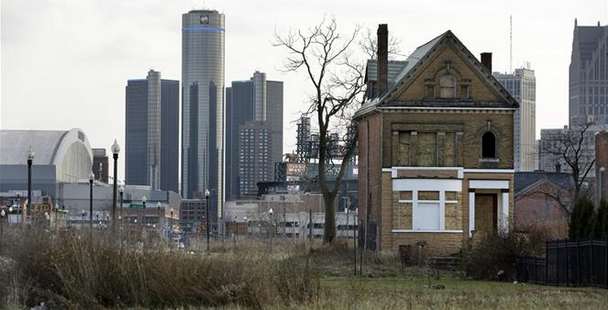It’s called outreach. It’s a foreign word for too many Repubicans and conservatives. It’s part of the information war — the thing too few conservatives fight in. Above is the title, and here is the subtitle of a post by Andrew Evans and Michael Hendrix at The Federalist: “Republicans have little say over some of the most dynamic, populated areas of the country. Here’s how they can be successful in urban areas.”
Here is the opening of the article:
Cities and Republicans have a troubled relationship. Republicans know they will lose the urban vote handily, so they rely on suburbs and rural areas to contest regional and statewide elections while typically losing elections within cities. Yet while only 4 percent of consistent conservatives say they prefer the city, urban America grows in economic, cultural, and electoral importance.
Data bear out this bleak picture for the GOP. Eighty percent of Americans live in cities with over 150,000 people while generating roughly 85 percent of the U.S. gross domestic product. Yet only 11 of the 67 American cities with more than a quarter million in population lean conservative. In the 2012 elections, President Barack Obama won 69 percent of the urban vote, driving victories down the Democratic ticket. And of the ten largest cities in the country, only one has a Republican mayor.
This electoral reality means that Republicans have little say over some of the most dynamic areas of the country. Cities are the engines of America’s economy and heart of its culture. Urban areas are thriving centers of productivity; a doubling of population density corresponds to a 10 percent increase in productivity. This productivity translates into opportunity, as San Francisco, which has both high productivity and high intergenerational mobility, demonstrates. Research indicates that every tech-industry job produces five more local jobs.
Democrats Are Hurting Cities
One-party rule in America’s cities wouldn’t be a big problem if our cities were healthy, but they are not. Cities are too often “closed,” both to new residents and new businesses, through their high costs and excessive regulation. Take housing, for instance. For 41 percent of households living in America’s ten highest-cost major metro areas, housing eats up over 30 percent of their annual income. In fact, a quarter of New York City households now devote over half of their paychecks to rent or mortgage payments.
Moreover, the cities’ institutions are often opaque to outsiders looking in, and these same institutions are too often guided by the liberal faith in central, technocratic rule. And many cities are on the verge of bankruptcy, if not already on the other side. Quite simply, progressives have failed the American city.
But cities do not have to remain under liberal rule, as we argue in the most recent issue of National Affairs. These problems all call out for the conservative solutions that Republicans at their best champion.
Read more: The Federalist
Image credit: www.townhall.com.

